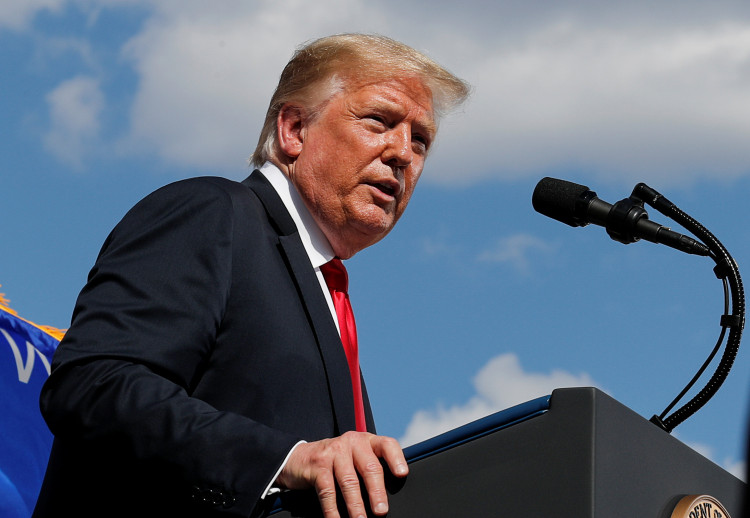On October 2, Eastern Time, former U.S. President Donald Trump's Civil Fraud Trial commenced in New York. Trump, visibly agitated in court, verbally lashed out at New York State Attorney General Letitia James and the presiding judge, Arthur Engoron.
According to Reuters, before the trial began, Trump told the media that the case was a "scam" and "political assassination" orchestrated by James. He also claimed that the Democrats appointed Engoron to use the case to interfere with the 2024 presidential election, suggesting that Engoron should be disbarred and removed from the bench.
Engoron became involved in the case as early as 2020, overseeing disputes related to evidence collection by James. In September 2022, James filed a civil lawsuit against Trump, his sons Donald Jr. and Eric, and the Trump Organization, alleging property fraud.
On September 26 of this year, Engoron ruled that Trump and his company had engaged in fraudulent practices by inflating asset values to deceive banks, insurance companies, and other institutions. Engoron also ordered the revocation of some of Trump's business licenses and said an independent monitor would continue to oversee the Trump Organization's operations.
In this trial, James is seeking a $250 million fine against Trump and a permanent ban on Trump, Donald Jr., and Eric from doing business in New York. She also seeks a five-year commercial real estate ban against Trump and the Trump Organization.
Trump, maintaining his innocence, described the trial as a waste of public resources and a continuation of "the greatest political persecution in history."
Donald Bender, an accountant who once handled Trump's tax returns, testified that day. According to NBC News, Trump appeared uneasy during Bender's testimony, at times pointing and gesturing animatedly, his face reddening as he spoke in hushed tones to a defense attorney.
At the end of the trial, the judge indicated that Bender's testimony regarding Trump's 2022 financial statements would need to fall within the statute of limitations to be admissible. Trump viewed the judge's remarks as a significant development in his favor.
After the proceedings, Trump declared victory, asserting that most of the charges were outdated. He told reporters in the courthouse hallway, "Everything is perfect, there's no crime, this is a crime against me."
Bender will continue to testify in the future, with Engoron revealing that the trial will extend into December.
On the same day, the Supreme Court rejected an appeal by Trump's former lawyer, John Eastman.
Previously, Eastman had refused to provide relevant emails to the House special committee investigating the Capitol attack, claiming attorney-client privilege. He had sought a review from the Ninth Circuit Court and had provided the emails, which were inadvertently made public. The case has now become moot.
Eastman had represented Trump in lawsuits challenging the 2020 presidential election results, alleging errors in the election process and outcomes in four states. He also spoke during the Capitol riot events. In August, Eastman and some individuals involved in the 2020 election fraud lawsuit were sued in Georgia.
Eastman maintains his innocence, and his legal representation stated they would challenge the indictment by all means.
Public records show that besides Eastman, top Trump GOP allies like Mark Meadows, former personal lawyer Rudy Giuliani, former senior Justice Department official Jeffrey Clark, Georgia GOP Chair David Shafer, and several lawyers who worked for Trump and some members of the Trump team were also indicted in connection with the Georgia election case.
Public information reveals that Trump faces a total of 91 criminal charges, including paying hush money to a porn star, illegally retaining classified information, and attempting to overturn the election. In civil court, he also faces a second defamation trial. Trump has pleaded not guilty to all charges.




